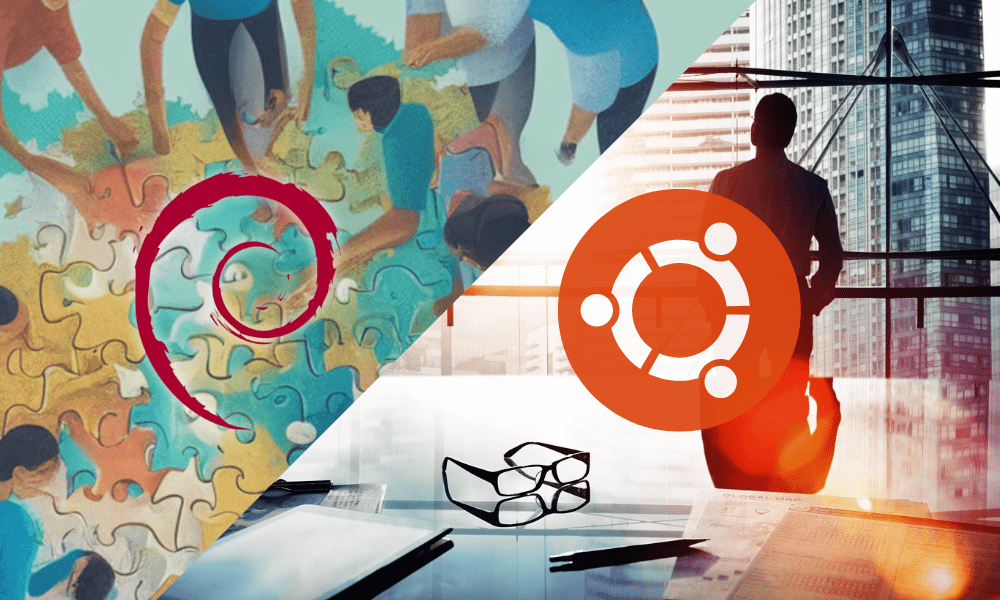I remember when I first dipped my toes into the vast ocean of Linux distributions, two names constantly bobbed up: Debian and Ubuntu. As a Linux enthusiast and a long-time user of both Debian and Ubuntu, I’ve been privy to many lively debates on forums and during meet-ups on the virtues and pitfalls of these two distros. Today, I’ll attempt to cut through the chatter and provide a detailed comparison of Debian and Ubuntu, elucidating the 10 key differences that every aspiring or seasoned Linux user should know.
Debian vs. Ubuntu: Unraveling the differences
1. Origin and Philosophy

Firstly, let’s understand where these two distributions come from. Debian, a veteran in the Linux world, was first released in 1993 and is entirely created by a community of volunteers adhering to the Debian Social Contract and Free Software Guidelines. This philosophy guarantees the freedom to use, modify, and distribute the software, making Debian a bedrock in the Linux community.
On the other hand, Ubuntu, born in 2004, is backed by a company named Canonical Ltd. Ubuntu aims to be user-friendly and straightforward, targeting the desktop market primarily, but without completely discarding the server market. Ubuntu also focuses on providing a consistent release cycle and commercial support.
Pros and Cons of Debian:
- User freedom is a core principle, leading to a high degree of customizability and control. Also, its community-driven nature ensures transparency.
- With no commercial backing, professional support may be lacking.
Pros and Cons of Ubuntu:
- Commercial support from Canonical ensures consistent updates and professional services.
- Less freedom to modify and control as compared to Debian.
2. Release Cycles and Versions
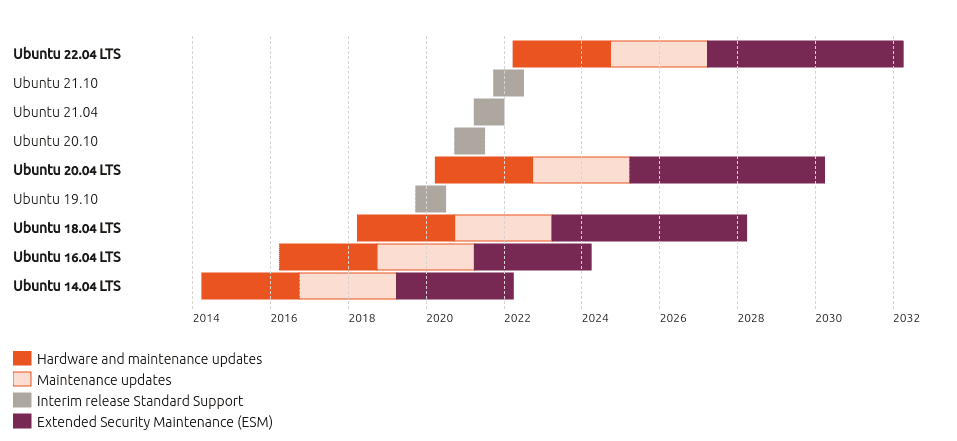
Ubuntu Release Cycle (Courtesy: Canonical)
Here’s where you’ll notice the first significant difference. Debian is known for its “when it’s ready” approach to releases. This means you get a rock-solid system, but at the expense of cutting-edge software. The Debian project releases three versions: Stable, Testing, and Unstable. ‘Stable’ is what most people use, with the other two catering more to developers and those who need the very latest software.
Ubuntu, conversely, has a predictable six-month release cycle for standard versions and a two-year cycle for Long Term Support (LTS) versions. This regularity makes Ubuntu more accessible for users who prefer to stay up-to-date with software advancements without too much unpredictability.
Pro Tip: If you’re setting up a server where stability and security are paramount, Debian’s ‘Stable’ version would be an excellent choice. For desktop users who desire newer software packages, Ubuntu LTS is a strong contender.
Pros and Cons of Debian:
- Its release-when-ready approach ensures you get a thoroughly tested, stable system.
- Updates can be slow, and software may be outdated.
Pros and Cons of Ubuntu:
- Regular and predictable updates mean you get new features quickly.
- Frequent updates might introduce instability or bugs.
3. Software Availability

Ubuntu Software
When it comes to software availability, Debian, with its three repositories (Main, Contrib, Non-free), offers a vast array of packages. However, some proprietary software is not included in the default installation due to Debian’s strict free-software policy.
Ubuntu, which is based on Debian’s ‘Unstable’ branch, offers a similarly broad range of software but goes a step further. It provides some proprietary software, like drivers and codecs, out of the box, which some users may find more convenient.
Pros and Cons of Debian:
- A vast array of packages to choose from.
- Some proprietary software might not be available due to strict free-software policies.
Pros and Cons of Ubuntu:
- Offers a wide range of software, including proprietary ones, out of the box.
- The inclusion of proprietary software might be against the preference of some users.
4. Default Desktop Environments
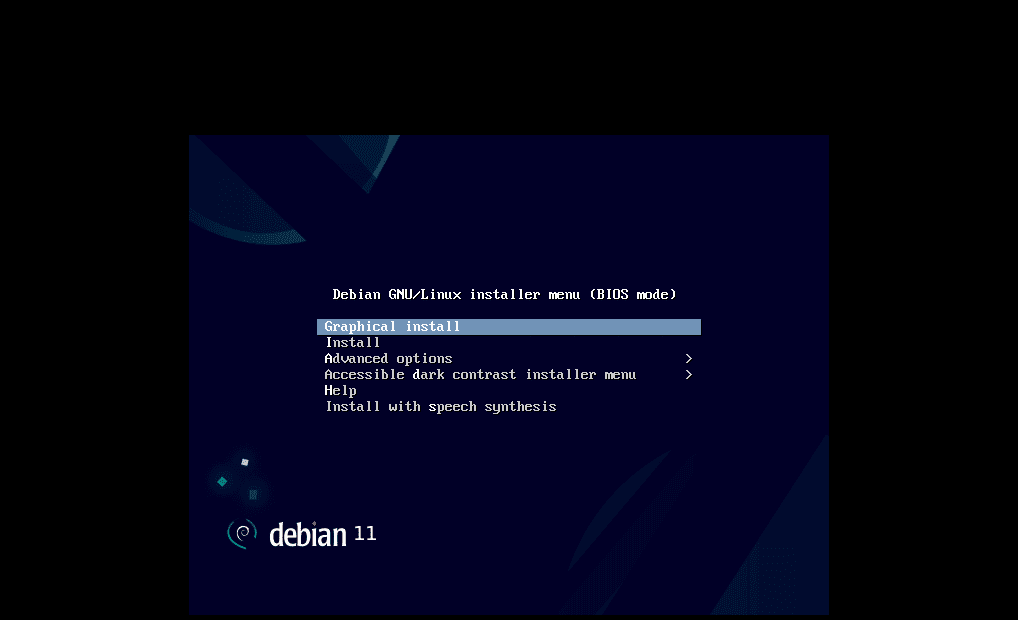
Graphical installation of Debian
By default, Debian uses the GNOME desktop environment but offers a choice during the installation process, allowing users to select from KDE, Cinnamon, Xfce, MATE, and others. This flexibility is ideal for those who wish to customize their interface according to their preferences.
Ubuntu, initially, also used GNOME but later switched to Unity in 2011. However, in 2017, Ubuntu made the move back to GNOME. While Ubuntu does offer other flavors with different desktop environments, the primary version is less flexible in terms of initial choices compared to Debian.
Pros and Cons of Debian:
- Offers a choice of multiple desktop environments during the installation process.
- Making a choice might be overwhelming for beginners.
Pros and Cons of Ubuntu:
- Provides a consistent and polished user experience with its default GNOME environment.
- Less initial flexibility in choosing a desktop environment.
5. Installation Process
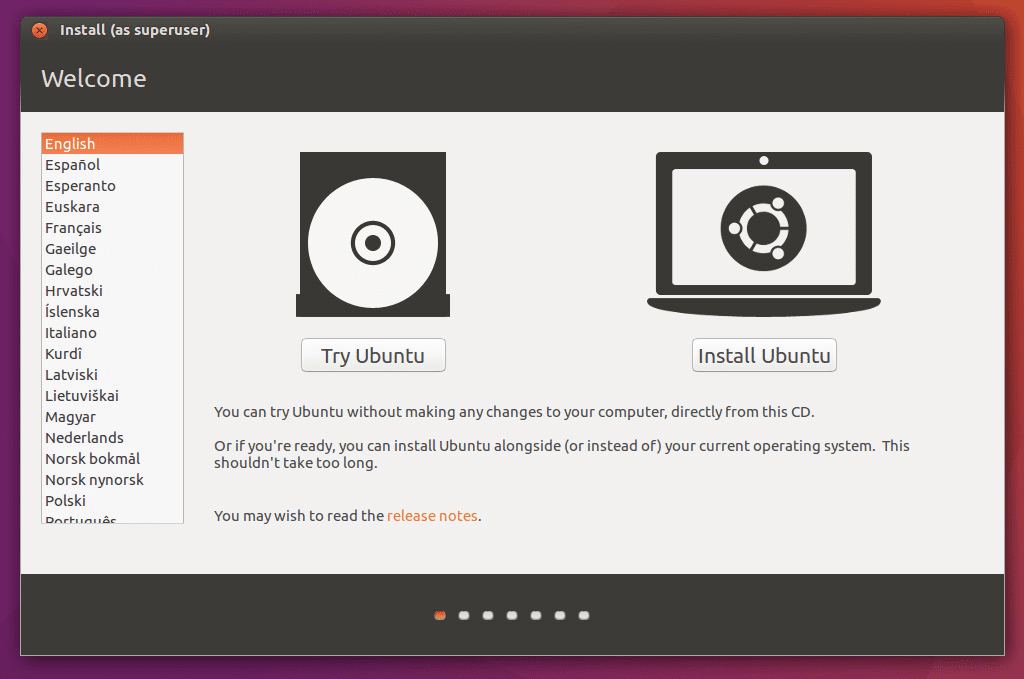
Ubuntu Installer
Debian’s installer, although very powerful, is often considered less user-friendly. It gives a lot of options, which can be overwhelming for beginners. In contrast, Ubuntu’s installer aims to make the process as straightforward as possible, simplifying the installation steps and offering a more intuitive experience.
Pros and Cons of Debian:
- The installation process offers many options, allowing experienced users to tailor the system according to their needs.
- The installation process may be intimidating for new users.
Pros and Cons of Ubuntu:
- The straightforward installation process is user-friendly, especially for beginners.
- Fewer customization options during the installation.
6. Hardware Support
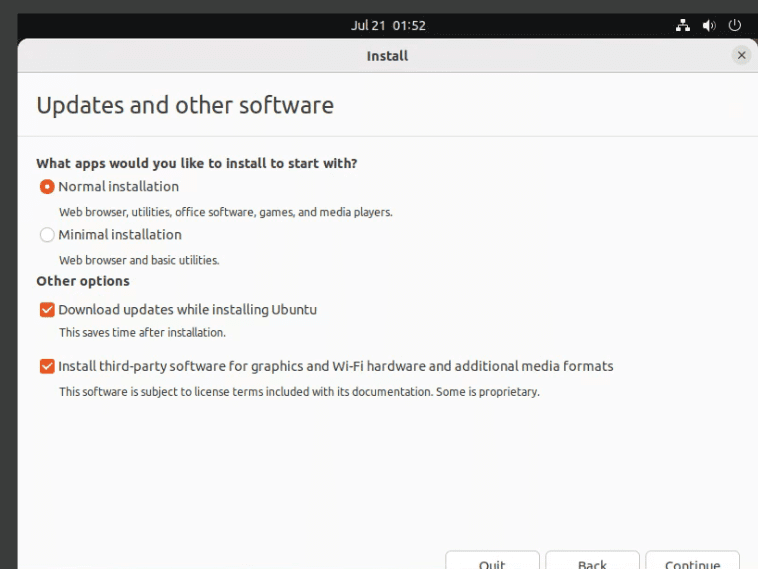
Ubuntu’s proprietary software support
While Debian’s commitment to open-source is commendable, it does sometimes pose challenges, especially when dealing with proprietary drivers. As a result, hardware support can occasionally be tricky in Debian.
Ubuntu, however, shines in this department. It provides excellent out-of-the-box hardware support, including proprietary drivers when necessary, making it a preferred choice for those who desire a hassle-free setup.
Pro Tip: If you’re using a system with specific hardware that needs proprietary drivers, Ubuntu might save you a lot of time and effort.
Pros and Cons of Debian:
- Pure open-source approach ensures software transparency and control.
- Hardware compatibility can sometimes be an issue due to a lack of proprietary drivers.
Pros and Cons of Ubuntu:
- Excellent hardware support, including proprietary drivers.
- The inclusion of proprietary drivers might not align with the preferences of purists.
7. Commercial Support and Popularity
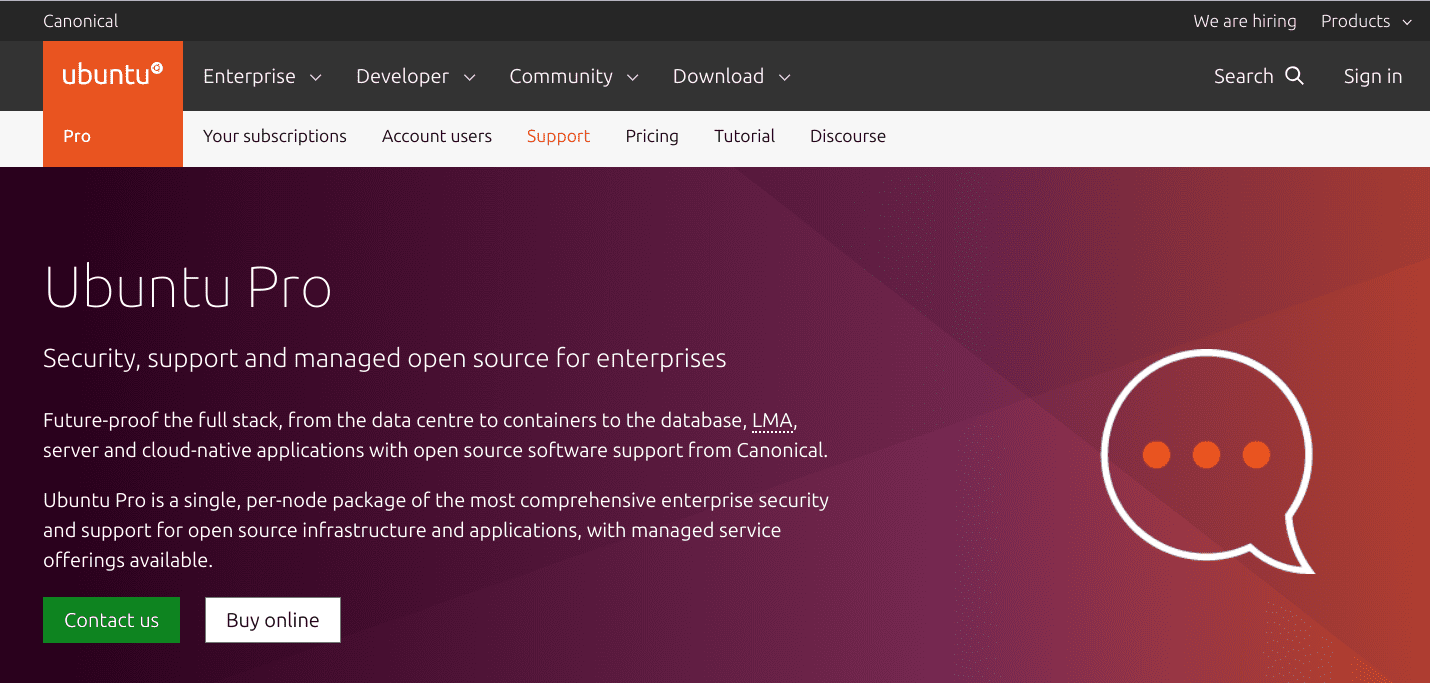
Ubuntu Commercial Support
Commercial support can be a deciding factor for businesses. Ubuntu, with its commercial backing from Canonical, provides professional support services and solutions like Landscape for systems management, which can be an attractive feature for enterprise environments.
Moreover, due to its user-friendliness and commercial backing, Ubuntu enjoys a larger user base and arguably a more vibrant community, providing an extensive array of tutorials, forums, and user guides.
Pros and Cons of Debian:
- Huge community support, with a wide range of forums and user-guides.
- Lacks professional commercial support, which might deter business users.
Pros and Cons of Ubuntu:
- Offers commercial support and has a large user base.
- Might not offer as much community-driven innovation as Debian.
8. Stability and Performance
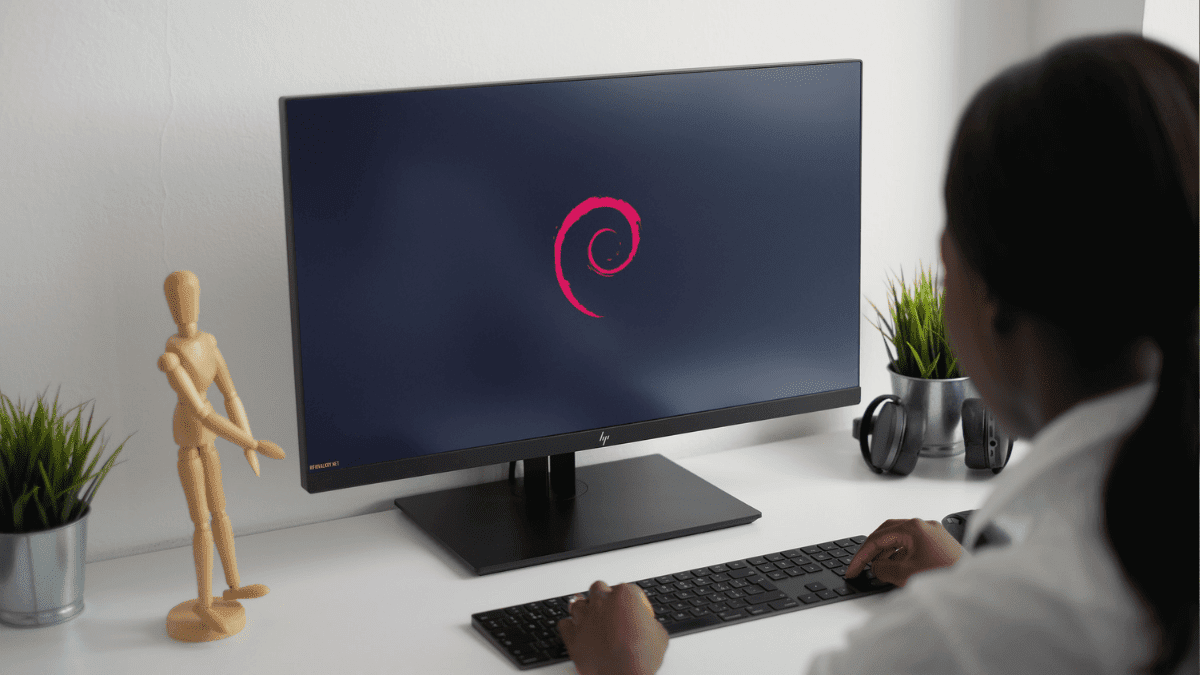
As I mentioned earlier, Debian’s ‘Stable’ version is rock-solid, making it a favorite for servers. While this can lead to outdated packages, the stability and reliability are unmatched. Ubuntu, while quite stable itself, tends to lean towards newer software, which, although generally reliable, might occasionally present minor issues.
Pros and Cons of Debian:
- Offers an extremely stable and reliable operating system.
- The focus on stability might result in outdated packages.
Pros and Cons of Ubuntu:
- Provides a good balance between stability and access to new software.
- The inclusion of newer software might occasionally introduce minor issues.
9. System Resources
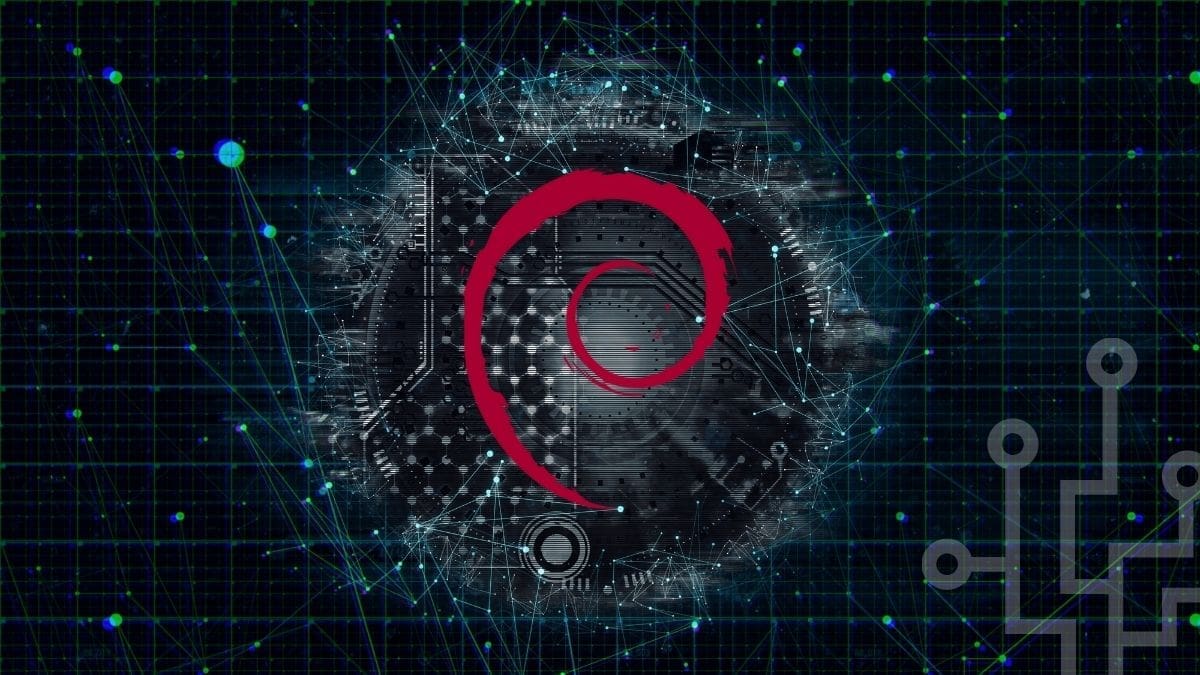
Monitoring system resources with top commandDebian is known for its minimalistic approach, requiring fewer system resources, which can be beneficial for older hardware. Ubuntu, while not a resource hog, uses slightly more resources due to its emphasis on a polished user experience and additional features.
Pros and Cons of Debian:
- Requires fewer system resources, ideal for older hardware.
- The lean approach might necessitate additional setup for a complete desktop experience.
Pros and Cons of Ubuntu:
- Offers a polished, feature-rich user experience out of the box.
- Uses slightly more system resources than Debian.
10. Default Applications
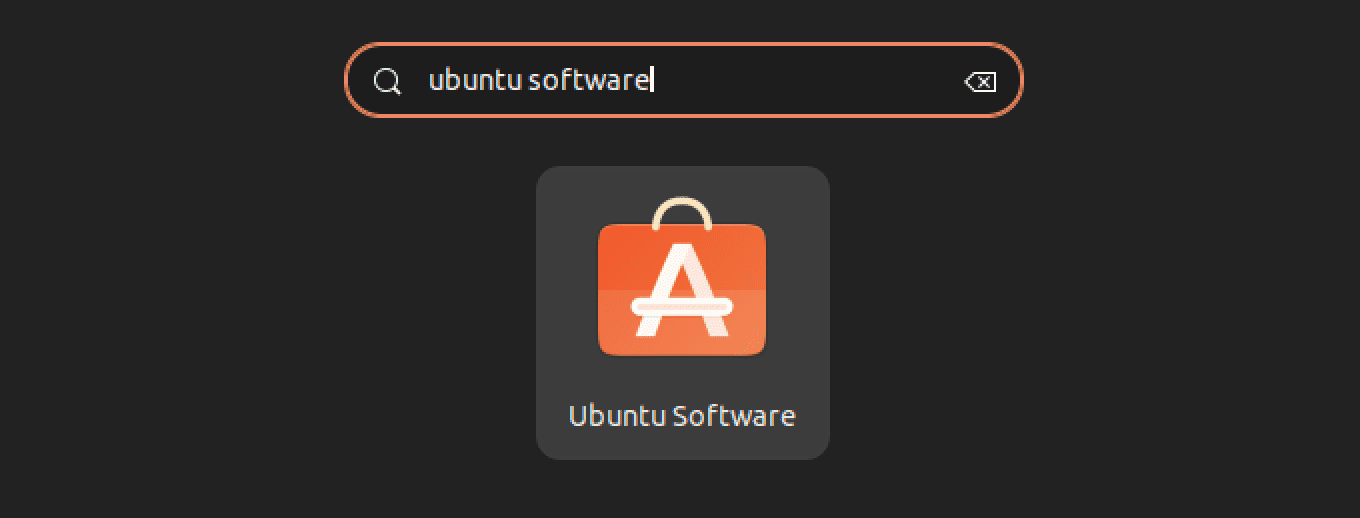
Ubuntu Software
By default, Debian comes with a leaner set of applications, sticking to the essentials. Ubuntu, in contrast, aims to provide a more complete out-of-the-box experience, including a suite of applications like LibreOffice, Thunderbird, and others pre-installed.
Pros and Cons of Debian:
- Comes with a lean set of applications, leaving the user free to install their preferred ones.
- Additional setup required to get a full suite of applications.
Pros and Cons of Ubuntu:
- Provides a complete out-of-the-box experience with a suite of pre-installed applications.
- Some users might prefer a leaner set of default applications.
Choosing Debian or Ubuntu: Who should pick what?
Debian might be the ideal choice if:
- You prefer an operating system built and maintained by a community of developers dedicated to free and open-source principles.
- Stability and reliability are paramount to you, such as in a server environment.
- You have older hardware or limited system resources and need an OS with minimal overhead.
- You enjoy a high level of customizability and don’t mind investing time to tailor your system according to your preferences.
Ubuntu might be the perfect fit if:
- You’re a newcomer to the Linux world and appreciate a user-friendly, intuitive operating system.
- You want a balance between software updates and system stability.
- You need professional, commercial support, or you’re a business user.
- You’re looking for a polished, “out-of-the-box” desktop experience, complete with a suite of pre-installed applications.
- Your system needs proprietary drivers for optimal hardware performance.
Ultimately, both Debian and Ubuntu are excellent choices, each with their strengths. Choose the one that best aligns with your needs and computing philosophy.
Conclusion
In the end, choosing between Debian and Ubuntu boils down to personal preferences and requirements. If you’re someone who values stability and has the time and inclination to tinker, Debian could be your faithful companion. On the other hand, if you prefer a more user-friendly, ready-to-go system, Ubuntu may just win your heart.
For me, the journey of discovery and learning in the Linux world has always been about embracing the diversity of choices. Whichever distribution you choose, the experience and knowledge you gain will be invaluable. Remember, every day is a good day when you’re learning something new! So, happy exploring!

